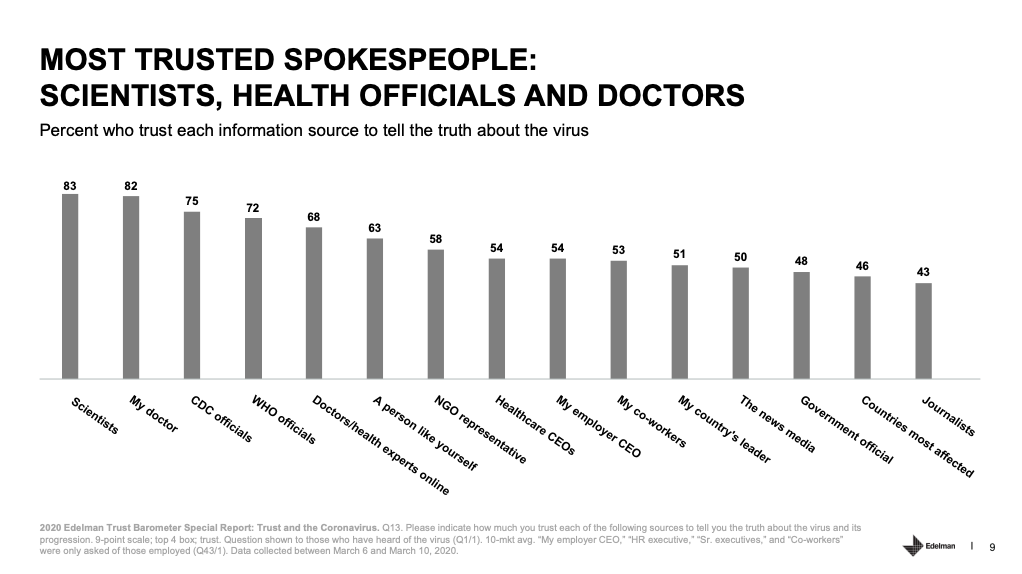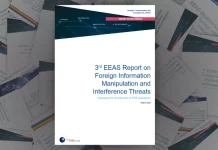By Hanaa Tameez, for NiemanLab
The coronavirus pandemic continues to throw salt in the wound we journalists have about the public’s trust in news.
The communications firm Edelman published a special edition of its annual Trust Barometer Report that highlights the role that the private sector must play in informing people about the coronavirus crisis.
Unfortunately, the study also underscores the public’s conflicting views of the news media.
From CEO Richard Edelman:
Given the present state of low trust, business will have to fill a further void, that of credible information. It is urgent that we enable fact-based decisions and allow our employees to feel part of a broad societal movement to fight this plague. For CCOs, it is time for you to initiate regular briefings for employees by your chief scientist or medical officer, to provide trustworthy content that can be shared with employee families or community, to reach out to government to cooperate in work-at-home initiatives and to ensure that the company’s social channels are contributing to knowledge and not panic.
I rolled my eyes too, reader.
Between March 6 and 10, Edelman surveyed 1,000 people in each of 10 countries: Brazil, Canada, France, Germany, Italy, Japan, South Africa, South Korea, the United Kingdom, and the United States. Those include some of the largest outbreak sites in the world, like Italy (59,138 confirmed cases), the U.S. (39,262), and Germany (27,047).
Overall, the study found that employers are considered to be the most credible sources of information related to coronavirus.
“Sixty-three percent said that they would believe information from
[their employer]
after one or two exposures, versus 58 percent for a government website and 51 percent for traditional media,” the report says.
On average, 70 percent of respondents are following coronavirus news daily. In Italy, 93 percent of news consumers are checking in daily while that drops to 50 percent in Germany.
Whatever their problems with trust, news organizations still win out in bulk — they are the most common source of coronavirus-related information. The survey found that 64 percent of respondents get most of their coronavirus-related information from major news outlets. Japan and South Korea top the list at 73 percent, while the lowest is 52 percent in France.
But journalists ranked dead last when respondents were asked what information source they trusted to tell the truth about the virus, at just 43 percent. “The news media” collectively, though, scored a little better at 50 percent. But that’s still lower than “a person like yourself,” at 63 percent.

OMFG, indeed.
It’s also a reminder of why it’s important that local media has taken the brunt of the news business’ financial distress over the past decade, not national media. Someone is much more likely to consider a local reporter — someone who hoards toilet paper from the same Target as they do — a “person like yourself” than, say, Wolf Blitzer.
On the misinformation front, 85 percent want to hear more from scientists and less from politicians, 74 percent worry about the spread of fake news about the virus, and 45 percent have trouble finding reliable and trustworthy information about the virus and its effects.
You can read the full findings here.
By Hanaa Tameez, for NiemanLab




